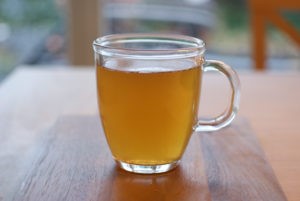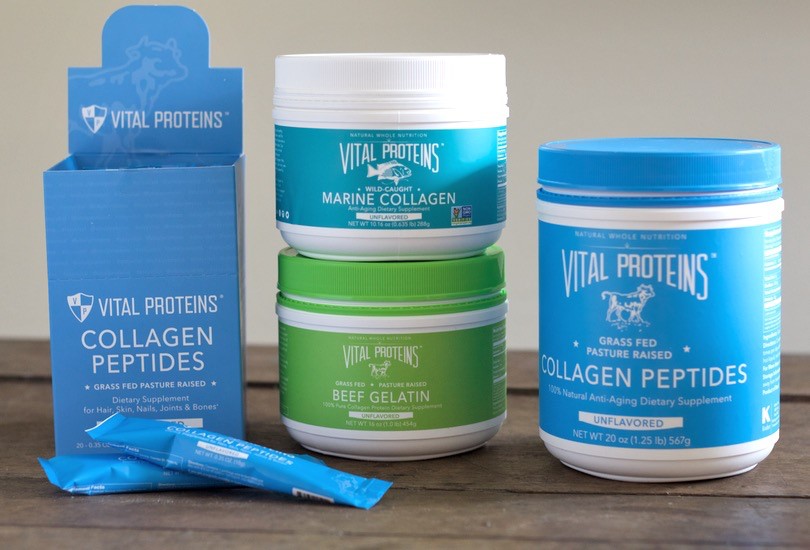My past two installments have covered inflammation, an alkaline body, the importance of “proper” breathing, as well as briefly touching upon autoimmune disease states. A person suffering from autoimmune disease invariably has gut issues.
The most common condition known as leaky gut may present differently from human to human. Some possible symptoms may include:
Nutritional deficiencies
- Poor immune system
- Headaches, brain fog, memory loss
- Excessive fatigue
- Skin problems such as acne or eczema
- Chronic diarrhea, constipation, gas or bloating
- Autoimmune diseases such as rheumatoid arthritis, lupus, celiac disease or Crohn’s
Gelatin and collagen are two proteins that can help heal a leaky gut, prevent wrinkles, improve digestion, and reduce joint pain.
Oftentimes, you may see gelatin and collagen used interchangeably. But while they come from the same source that has a similar amino acid profile — bones, skin, and tissue, — they’re not exactly the same thing.
Bone broth is one of the most delicious ways to get more collagen and gelatin into your diet.
However, when broth comes to mind, people often think of boxed chicken or beef stock commonly found on your local supermarket shelves. These conventional broths are often produced in mass quantities, are laden with MSG, high sodium, and other preservatives, and ultimately contain few nutrients.
In recent years, numerous Paleo followers have praised the consumption of home-cooked bone broth on a regular basis for its beneficial healing properties. Specifically, because it contains key nutrients essential for maintaining a healthy gut. Individuals suffering from digestive problems such as leaky gut, IBS, or flora imbalance can aid in their healing by (among other things) regularly consuming bone broth.
But, most of you are probably wondering what the difference is between collagen and gelatin?
Simply put, the differences between collagen and gelatin come down to how they’re processed.
COLLAGEN
To understand gelatin, we have to start with collagen. Collagen is the primary protein in connective tissue, skin, and bones. And actually, you have more collagen in your body than any other type of protein, making up 25-35% of your whole-body protein content!
We know collagen is associated with maintaining a youthful feel and appearance. So, no surprise to learn that collagen is a fibrous protein that’s a key component of your skin. It helps keep your skin youthful and resilient, as well as lubricate your joints and, often aid in digestion. It’s also jam-packed with “nonessential” amino acids that are actually pretty important in keeping the body functioning smoothly.
You can find this wonder protein everywhere in the human body, but mainly where joints meet and in connective tissues.
This is the product I recommend to most of my clients. I like the integrity of this company and, specifically how the products are sourced.
Collagen peptides and gelatin are both made by breaking down the full-length collagen molecules. They are made of the same amino acids as collagen, but they have different properties. Collagen peptides are much shorter chains of amino acids than whole collagen and gelatin. Because they’re shorter, collagen peptides are more bioavailable (easily broken down or absorbed into the body more quickly). Here are just a few of the ways collagen peptides help the body:
- Once absorbed, collagen peptides travel throughout the body, repairing, rebuilding and providing energy.
- The amino acids in collagen help to heal and soothe the gut, leading to greater absorption nutrients.
- Collagen’s amino acids may also help prevent intestinal permeability (i.e., leaky gut)—a condition linked to a host of autoimmune diseases like MS, Crohns, and celiac disease.
- Collagen plays an important role in the building and support of joints, and it may help reduce the discomfort associated with osteoarthritis and rheumatoid arthritis.
What makes collagen cool compared to other protein powders is its versatility. It’s taste free and completely dissolves in liquids. So, coffee still tastes like coffee. I like to add mine to kombucha, or green tea. And, heat won’t mess with collagen’s benefits either!
Collagen hydrolysate (often used interchangeably with collagen peptides) have been heated to higher temperatures and then treated with enzymes. The process breaks the bonds between the amino acids (though keeps the amino acids themselves intact). Because the amino acids are broken down, some people find collagen hydrolysate easier to digest than collagen. However, your digestive system is going to break down the amino acids anyway so there isn’t any difference in nutritional value.
GELATIN
Although the most nutrient dense, and most widely talked about source of gelatin is homemade bone broth (since it contains minerals as well), powdered versions offer a more convenient way to consistently get it into your diet. It is important to note: unlike collagen peptides, gelatin is only hot water soluble.
When you eat gelatin, you replenish your body with collagen—which strengthens bones, ligaments, and muscles, nourishes organs, restores luster to hair, makes nails strong, bolsters the immune system, and even heals your gut and reduces inflammation.
COMPARING AND CONTRASTING
The main difference between gelatin and collagen peptides is really how you use it. Collagen peptides will NOT gel and can dissolve into both cool and warm liquids. Because the amino acid bonds are broken down, it is easier to digest, is absorbed by the body faster, and is good for people with digestion problems.
Collagen peptides provide the same health benefits as gelatin, however, in my opinion, the main “advantage” to taking collagen peptides over gelatin is that it is easier for your body to digest and absorb, and cause fewer digestive symptoms. Not only that, it’s possible that because collagen peptides are easier to absorb, you may notice the health benefits of collagen sooner when taking peptides, compared to gelatin powder.
If you have any questions, please feel free to ask in the comments section or send a message.
Amy is a private nutrition counselor with a master’s degree in Nutrition and Health Sciences and also teaches Juicing workshops. She is certified by the World Paddling Association as an instructor, a Paddle Into Fitness Ambassador and paddleboard yoga instructor and is considered among the leading experts in her field.






